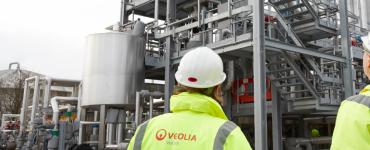Sludge Treatment
Treatments for sludge reuse/disposal to remove water, reduce volume and conserve recovery potential.
What is Sludge Treatment?
Sludge is the semi-solid matter produced from various industrial processes, typically water treatment, wastewater treatment and sewage treatment. Sludge treatment refers to the range of processes used to reduce or remove potential health risks, remove water from the sludge and reduce its weight and volume, thus reducing disposal costs.
Sludge Treatment Processes
Veolia sludge treatment processes can now transform what was once considered a waste stream into a valuable resource. Municipal and industrial sludge treatment methods include dewatering, sterilisation, chemical stabilisation, thermal hydrolysis with biological treatment, sludge reuse and disposal, odour treatment and incineration, to name just a few. Sludge treatment technologies, such as anaerobic digestion, can cope with all kinds of organic, industrial or municipal sludge, reducing the volume of dry matter and maximising the production of odourless, reusable biogas.
Advantages of Sludge Treatment
Effective treatment of sludge provides tangible benefits:
- The sludge volume is reduced
- Water is recovered for potential reuse
- Health risks associated with sludge are reduced or eradicated
- Agricultural fertilizer can potentially be created
- Sludge disposal costs are significantly reduced



































